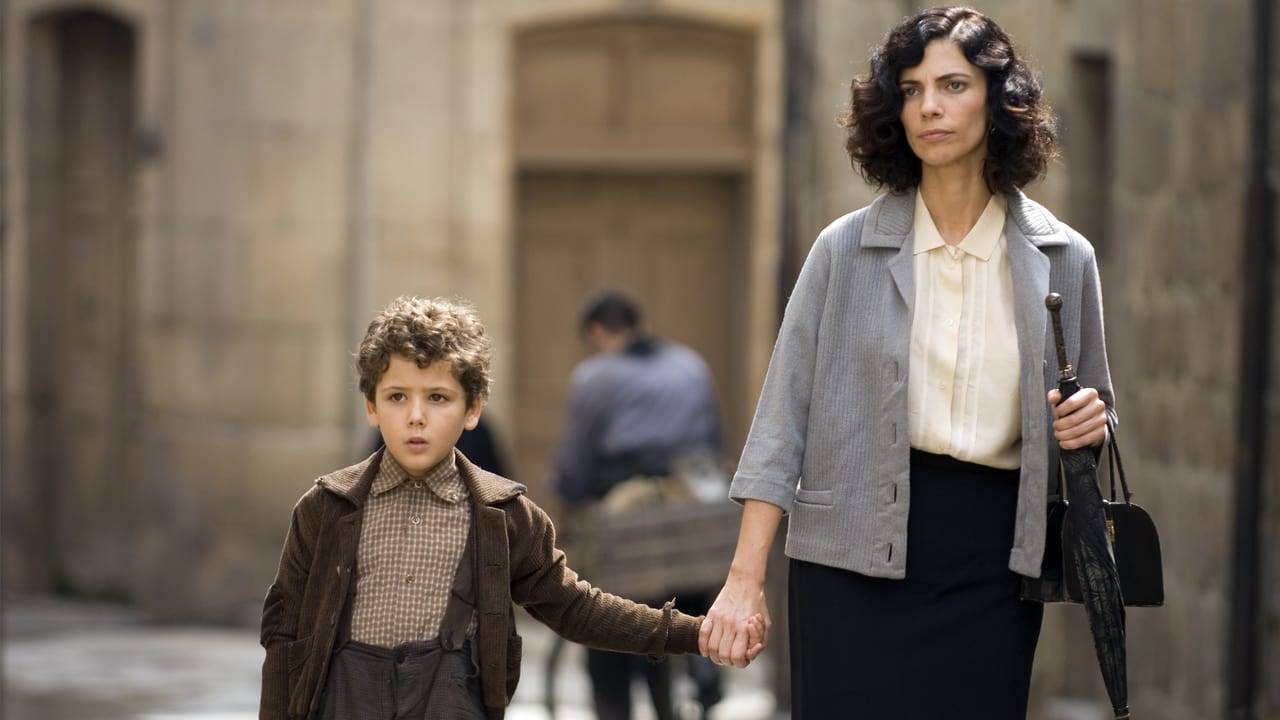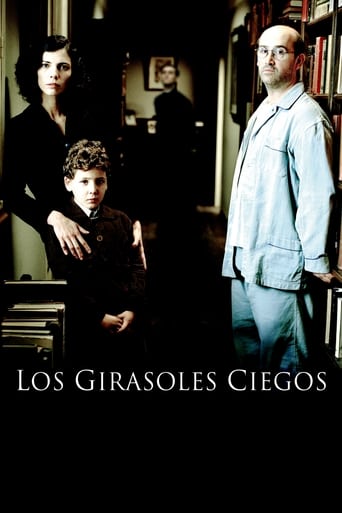Tuchergson
Truly the worst movie I've ever seen in a theater
NekoHomey
Purely Joyful Movie!
Dirtylogy
It's funny, it's tense, it features two great performances from two actors and the director expertly creates a web of odd tension where you actually don't know what is happening for the majority of the run time.
Roy Hart
If you're interested in the topic at hand, you should just watch it and judge yourself because the reviews have gone very biased by people that didn't even watch it and just hate (or love) the creator. I liked it, it was well written, narrated, and directed and it was about a topic that interests me.
eatcrowepls
This is a decent Spanish post-war drama. It's nothing really special but the acting is good, the writing is fine, and it's a well constructed and well done film. I wish there were more surprises and parts of it dragged but it's definitely worth watching if you don't mind "foreign films" with re-dubs or subtitles, they don't bother me so much but I know others hate reading while trying to watch visuals.
ma-cortes
It is set in 1940 Orense , Galicia , there appears a Seminarist , Salvador : Raúl Arevalo , who has participated in the Spanish Civil War and has a dark past as a soldier . Salvador comes to a school to teach kiddies , one of them is Lorenzo : Roger Princep . The little boy Lorenzo lives with his mother Elena , Maribel Verdu , and his hidden father Ricardo : Javier Cámara , who is locked at home attempting to avoid be chased . Furthermore , their daughter Elena : Irene Escolar , about to escape with Lalo : Martiño Rivas , a pursued communist.Intense drama dealing with the consequences of Spanish war (1936-39) about an undercover family whose father is living hidden at a flat , as he is pursued by the Francoist authorities . This one turns out to be another film upon Civil War and Francisco Franco period , usual themes in Spanish Film history . Last screenplay by the great Rafael Azcona considered to be the best writer of the Spaniard cinema and based on a successful novel by Alberto Méndez . The cast gives acceptable interpretations as Raul Arevalo as a confused priest who arrives in Orense after fighting in the war front , Javier Cámara as a professor who spends several years hidden at home attempting to flee from an obstinate persecution . Maribel Verdú delivers a passable interpretation , but overacting at times , she suggested Raúl Arévalo for the main character . There are interesting scenes , especially the provoking dialog between Salvador/Raúl Arevalo , and the priest/Jose Angel Egido . However , some scenes between Arevalo and Maribel Verdú result to be embarrassing . Both of them do not deliver the necessary chemical . In addition , the secondary plot line about the young daughter and her lover does not fit to script . Evocative settings , being perfectly set in its period . Colorful and atmospheric cinematography by Hans Burmann . The great cameraman Hans Burmann has a long career from the sixties to present-day, including successes as ¨Bearn¨ , ¨Guantanamera¨ , ¨Rey Pasmado¨ , ¨Gitanos¨ , ¨Open you eyes¨ and ¨Tesis¨. Emotive and sensitive musical score by Lucio Godoy.The motion picture ¨The blind sunflowers¨ (international title) was professional but regularly directed by José Luis Cuerda , and it was Spain's 2009 Academy Awards official submission to Foreign-Language Film category. It won several Goya Awards 2009 as Goya Best Adapted Screenplay : Rafael Azcona , José Luis Cuerda , Goya Best Lead Actor : Raúl Arévalo , Best Lead Actress : Maribel Verdú , Best Supporting Actor José Ángel Egido , Best New Actor : Martiño Rivas , Best Director : José Luis Cuerda , Best Cinematography : Hans Burmann , Best Editing : Nacho Ruiz Capillas , Best Production Design : Balter Gallart . And Spanish Actors Union won : Performance in a Minor Role, Male : José Ángel Egido . And Cartagena Film Festival 2009 won Golden India Catalina Best Director : José Luis Cuerda and Best Supporting Actor : Roger Príncep . Besides , Cinema Writers Circle Awards , Spain 2009 CEC Award Best Actress : Maribel Verdú . José Luis Cuerda is a veteran craftsman , being his film debut ¨Pares Y Nones¨ , a typical Madrid comedy . He subsequently directed ¨El Bosque Animado¨ that achieved enough success . He followed directing flops as ¨Viuda De Capitán Estrada and ¨Tocando Fondo¨ . His biggest hit was ¨Amanece Qué No es Poco¨ and its sequel ¨Así En El Cielo Cómo En La Tierra¨.
Chrysanthepop
The film has received a lot of criticism for not being true to the book. Adapting novels is no easy task especially when you have to fit it into a 100 minute. I haven't read the novel and based on what I've seen of this film, I don't think it's as bad as a majority have called it. I do agree that it could have been a lot more. The film could have further explored the tension and terror of the Franco regime. The angle with the daughter and her boyfriend is very poorly developed.In the end, the focus of Rafael Azcona's script is on the infatuation of a young deacon and Elena and Ricardo's attempt to live together in secret. The infatuation theme is well explored. The character Salvatore is constantly in doubt and gives in to temptation which eventually gets the better of him. Ricardo is presumed dead or escaped. He continues to write against the regime in secrecy. The conflicts that arise between him and his wife and his own anguish and struggle could have been further developed.The plus is that 'Los Girasoles Ciegos' is a well made film on the technical side. It 'looks' clean. The polished sets, costumes, locations etc are nice to look at. The score is pretty good too. This film does provide some insight(albeit a toned down one) to those who know very little about Spain under Franco's power.The performances stand out. Maribel Verdú does a fine job as the wife struggling to hide her husband, to maintain the family secrecy and deal with the deacon's infatuation. The role itself is a little bleak but Verdú manages to rise above it. The Ricardo character is sketchy but Javier Cámara does the best he can. Raul Arévalo is brilliant in a complex role.Given the source, 'Los Girasoles Ciegos' had potential. However, as a standalone film, in my opinion, it's not a complete failure as I found it to be quite a watchable film.
Ire
Once again, the postwar period is used as stage for a good movie with magnificent actors who turn it into a big one, giving life to prominent figures who fight to survive, trying to give sense to their acts, no matter what. It is true that Javier Cámara's jump turns out to be artificial, maybe because he does not spread himself in dramatic quality and goes to the practical thing, but Maribel Verdú, in her better moment of the movie, reduces the fault completely. We have an adaptation that focuses on the conflict of one of the main characters of the original tale. The totally corrupted by the war morality of the religious man (something that reminds me to the soldier men of In Elah's Valley) If they had focused, for example, on the confinement of the husband, we would have another thing, better or worse, we do not know it, but it would be already another story. By the way, the child asks this question because he does not see the suicide. Is just the woman who runs towards the room when the husband says goodbye.

